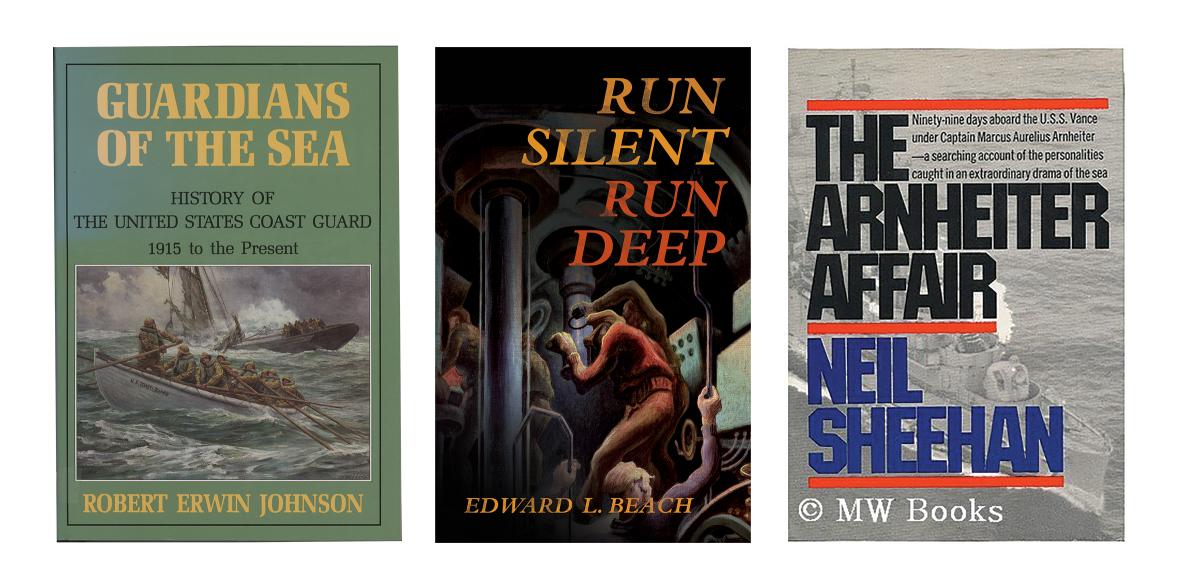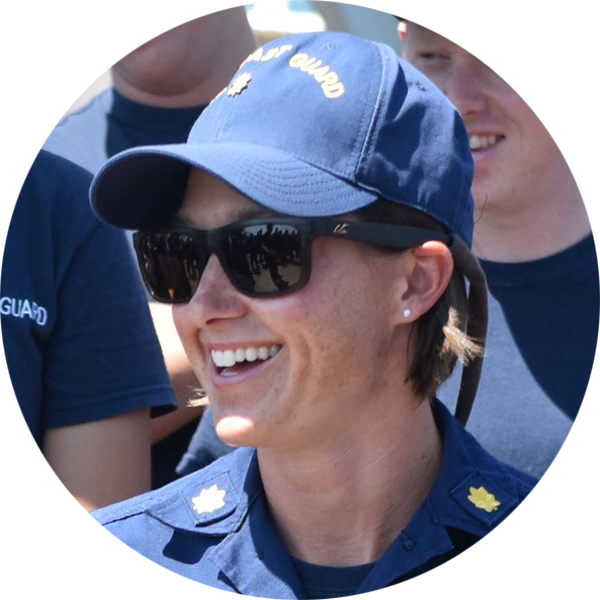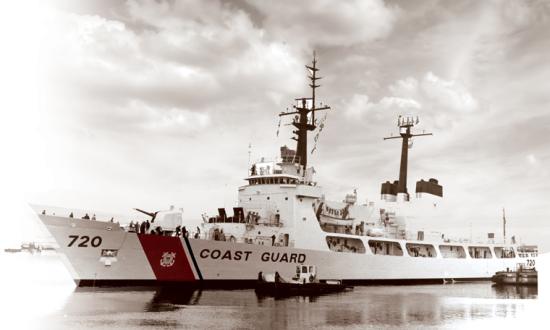All I want you to do for this year, Brooke, is to read. Read as much as you can,” were the words retired Vice Admiral Pete Daly, chief executive officer and publisher of the U.S. Naval Institute, said upon my check-in to the Institute in late July 2019.
Read. OK. Simple enough.
I started each morning reading the news: Articles by the Institute’s own Sam LaGrone on USNI News. The Washington Post, hand delivered each day around 0900 by its previous owner, officemate and legend Denis Clift. Once a week I would walk across the Yard to Nimitz Library, to read a few magazines but always The Atlantic. After weeks of reading the news, I called my mother, nearly crying: Brazil was on fire, Hurricane Dorian had destroyed parts of the Bahamas, our own country’s President was being investigated, and China was taking over the world. She asked me where I had been.
I decided to read less news.
I opened up Guardians of the Sea, a history of the U.S. Coast Guard and a book I had bought while in college but never really read. This text led me down several rabbit holes. The author, Robert Erwin Johnson, does a fine job capturing several moments in the service’s history, but I wanted to dig a bit deeper about key moments in time.
“You want to know more about Admiral Waesche?” asked Denis. “Read the Commandant oral histories.”
The Coast Guard has had 26 Commandants; the Naval Institute has published ten of their oral histories for posterity. I began with the earliest Coast Guard oral history on record, that of Merlin O’Neill, who created the Coast Guard Auxiliary just before World War II under then–Commandant Russel Waesche’s direction. O’Neill is fascinating; in the end, I wrote an article about his remarkable adaptability after comparing his generation’s adaptability against discerning trends of today. The Institute published my article, which made me nervous and excited. I remember being unable to sleep the night before it went live. The last time work caused me to lose sleep was before I drove America’s tall ship 8 knots outbound of New Bedford, Massachusetts, between the narrow gap of the hurricane barrier. That, too, gave me the jitters, but oh, what a thrill!
In September, I had the privilege to coordinate the visit of General John Kelly, retired Marine, former Southern Command commander and Secretary of the Department of Homeland Security, and Chief of Staff for President Donald Trump, to the Coast Guard Academy in New London. That, too, was exciting, as I was able to sit in the studio during his podcast, drive him from touchpoint to touchpoint, listen, and learn. Kelly is passionate about solving our southern border challenges and believes, wholeheartedly, that the problem begins with the American appetite for drugs. I found his lecture fascinating, spent time researching his points, and wrote about that, too.
I discovered the treasure trove that is USNI.org’s digitized vault of every article printed in Proceedings since 1874. Previously, I had read the RAND study on retention of women, and I was curious if the services had retention issues before. I typed “retention” into the search engine. Sure have. The Sea Services had retention issues in the early 1970s after the draft, and in the 80s, the 90s, and the early 2000s. Each decade’s retention challenge yielded a corresponding study, yet the reasons folks leave the service remained the same: Time and again, these studies found our military members desire a job worth doing with decent pay under a good leader who values their individual contributions.
I completed a survey of nearly all articles published in Proceedings by Coast Guard authors, the first of which appeared in June 1917. I observed that most of these articles spend half a page explaining what the service does. An overwhelming sentiment among these authors to their Department of Defense readers: Use the Coast Guard, as it is a valuable tool in the national defense arsenal. A selective service with Title 10 and Title 14 authorities, the Coast Guard is a networked organization invested in daily partnerships with local, state, national, and international agencies and, by the nature of its regulatory duties, has valuable connections with industry, too. Today, more than ever, relationships matter. The Coast Guard’s ability to bring deciding authorities together is one of its hallmarks.
As a member of the Naval Institute editorial board, I read more than 150 articles submitted for consideration in Proceedings, the bulk of them discussing topics Navy- and Marine Corps-centric. Many highlight issues in Navy culture, organizational structure, and acquisition; yet, it also is clear their authors care deeply about their services and their future.
I had the autonomy to read whatever I wanted—and when I did not understand a moment referenced in an article or book, I had the time to research that topic and read more about it, to further understand the situation. But everything I read was vetted, edited, and prepared by professionals—unlike most of the media and news available today.
I read 18 novels for pleasure, too. I became enthralled with the silent service after reading Run Silent, Run Deep by submariner Ned Beach. The Institute’s headquarters, Beach Hall, is named after Captain Beach and his father and namesake, a Navy duo who dared to read, think, and write. The Arnheiter Affair, a real-life Caine mutiny of the Vietnam War, blew my mind. And since I had little knowledge of the Coast Guard’s role in Vietnam, I read Alex Larzelere’s The Coast Guard at War: Vietnam. For a small service, we had a significant number of cutters and pilots supporting Operation Market Time.
I also attended several conferences, networked with amazing leaders, and observed the inner workings of an impressive and dedicated nonprofit organization. But to me, the most valuable experience of my fellowship was reading, thinking, and writing. I recognized through this endeavor that our service’s challenges are not always new; history is cyclical, and we can apply past strategies to help achieve present objectives. But to do that, we must read and learn.
ν Commander Millard was the Coast Guard’s first Federal Executive Fellow to the U.S. Naval Institute. She currently is the speechwriter for the Commandant and Vice Commandant of the U.S. Coast Guard.







